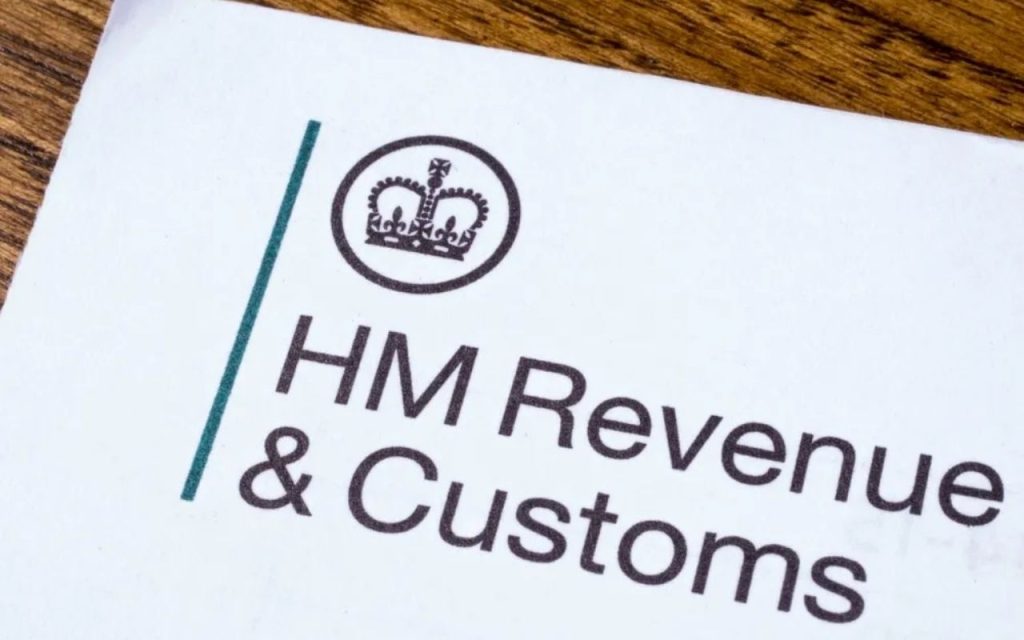HMRC Letters: HM Revenue and Customs (HMRC) has a critical role to play in the UK’s financial activities, which include collection of taxes, enforcement of compliance and management of various public services. In the last couple of years, HMRC has intensified its campaign to combat tax evasions, improve on accurate reporting especially on upcoming financial sectors such as cryptocurrencies. This publication explores HMRC’s activities including focusing on undeclared crypto income, dealing with delays in processing among other issues as at 2024.
HMRC Concentrates on Undeclared Cryptocurrency Income
The rapid expansion of cryptocurrency use has made tax reporting quite complex. In recognition of this fact, HMRC initiated campaigns aimed at ensuring that taxpayers make correct declarations regarding their incomes and gains from cryptos. A major part of this strategy involves sending “nudge letters” to persons suspected underreporting or not declaring their crypto transactions.
The main purpose of these nudging letters is to remind taxpayers to go through their crypto activities and correct any discrepancies in their tax returns. The consequences of not responding rightly can be severe; fines equivalent to 100% of the tax owed particularly when the assets are held abroad. By engaging with cryptocurrency exchanges and international data sharing agreements, HMRC has enhanced its capability to gather information, thus able to trace transactions more effectively.
HMRC introduced a disclosure facility in November 2023 specifically for individuals whose crypto-tax reporting is irregular. This program offers better settlement terms for voluntary disclosures in view of encouraging people to make full and complete disclosures promptly. In fact, by January 2024 over eight thousand nudge letters had been dispatched which indicates that HMRC was committed on curbing evasion of taxes from cryptocurrencies.
HMRC Letters: Knowing Crypto Assets Tax Obligations
In the UK, taxation of digital currencies mostly falls under Capital Gains Tax (CGT) and sometimes Income Tax. As from financial year 2024-2025 CGT allowance stands at £3k. Any gains beyond this will be charged at 10% for basic rate taxpayers and at 20% for higher rate taxpayers.
It is also possible to classify activities such as staking or high-frequency trading as income which makes them susceptible to Income Tax rates that can range from 20% to 45%, depending on the tax band of the individual.
Therefore, taxpayers must realize that even if they do not convert their crypto assets into fiat currency, certain transactions like exchanging one cryptocurrency for another might still be taxable. Undeclared gains are more likely to be discovered due to HMRC’s advanced data analytics and international cooperation. Therefore, it is important for individuals involved in crypto transactions to maintain proper records and may need assistance from tax advisors.
HMRC Processing Delays in 2024
The year 2024 saw HMRC experience significant processing delays across a number of services affecting both taxpayers and professionals. Some of these included tax refunds, corporation tax return submissions, and general correspondence.
On 13th and 16th December 2024, CT600 online returns took long to be responded to. Affected taxpayers were also advised to keep checking HMRC’s business response and call the online service helpdesk if no answer was received after three days.
Additionally, several people who were waiting for their tax refunds had complained of prolonged periods of waiting which saw some of them remain unpaid for more than ten working days. HMRC explained these delays as either data issues or verification pending, therefore they requested for eight weeks grace period from taxpayers.
These processing delays have been a source of frustration for many, particularly those relying on timely refunds for cash flow purposes. While acknowledging that it is processing thousands of refunds daily, tax experts state that approximately ten percent are not released due to different hitches every time. To avoid such delays, all information submitted should be accurate and complete thereby reducing the chances of having processing issues.
HMRC’s ‘Name and Shame’ Policy
As part of its enforcement strategy, HMRC maintains a ‘name and shame’ policy where individuals and businesses intentionally evading payment of taxes are publicly named.
The aim of this is to discourage potential offenders and also to ensure openness.
The list, which is updated regularly, contains elements such as defaulters name, address and nature of business and the amount they have evaded. HMRC publishes this information in order to encourage compliance and deter deliberate tax evasion.
Taxpayers should treat this policy with utmost seriousness since being listed can result in reputational repercussions apart from financial penalties. To avoid these consequences, accurate and timely tax reporting should be ensured.
Using the Childcare Calculator
For families who require financial support for childcare costs, HMRC offers a Childcare Calculator. This online tool allows parents to find out whether they qualify for any government childcare support programs like Tax-Free Childcare or free childcare hours.
Users will only need to key in details about their income, employment status and so on, in order to get an estimate of what they can be supported with. The resource is invaluable for budgeting purposes as well as planning hence helping families make informed decisions regarding child care options.
About the Companies House Checker of Verification for Company Information
The Co Checker is a resource that allows people and businesses to confirm the details of their company as they appear on the register at Companies House. It contains information such as directors’ names, accounts, and filing history.
Using Co Checker ensures transparency, especially during due diligence exercises when contemplating new business relationships. Correct information regarding companies is very essential in decision making when it comes to business matters and in maintaining trust with customers involved.
Croydon HM Revenue & Customs (HMRC) Office
It’s one of several regional centers of HMRC that offer different services to tax payers and businesses. This office mainly deals with tax compliance, customer queries and processing tax returns; it focuses mostly on this work. Regional offices like Croydon have played an important part in HMRC’s drive towards modernization and improved accessibility for taxpayers over recent years.
For those who prefer to be assisted physically, Croydon office offers advice ranging from personal tax obligations to corporate taxation. People are advised to arrange appointments beforehand as walk-ins are accepted only on a limited basis.
Also, Croydon office has helped in HMRC’s attempts to digitize services through facilitating efficiency in communication with taxpayers via the internet as well as telephone lines. HMRC on its part should be commended for having a commitment towards supporting tax payers locally and embracing the growing need for digital services.
The Role of Enrolled Agents in Assisting Taxpayers
Among other things enrolled agents are authorized by HMRC to represent taxpayers in matters like audits, collections and appeals. To make their work easier, they can use a platform such as The Enrolled Agent Forum which is a community where they meet regularly to share ideas on various challenges faced while doing taxes or learning about changes affecting the policy aspect of taxation.
A taxpayer who deals with complex issues may find it necessary to consult an enrolled agent who will provide them with professional advice that is tailored to their situation. When tax remittance has not been made under crypto dealings or where disputes arises involving HMRC, this becomes crucial. Through them, taxpayers get represented vis-a-vis HMRC and at the same time ensuring compliance with tax laws.
With this forum therefore, enrolled agents can learn more concerning new issues that are emerging including cryptocurrency taxations and delays by HMRC during processing. In 2024 there is expected to be increasing importance attached o enrolled agents who play significant roles of helping UK citizens within various continuing reforms touching upon taxes and enforcement activities for that particular year.
2024: Navigating HMRC’s processing delays
Since it seemed normal, the 2024 experienced challenges of this kind by at HMRC. It is important to note that all these delays have very many impacts on tax codes, VAT registrations and tax refunds among others. Although there has been an acknowledgement by the HMRC on this fact and a promise to address them, but still the backlog continues to be an are of concern for taxpayers.
Key Areas Affected by Delays:
Tax Refunds: Waiting time for individuals as well as businesses demanding for refund requests gets longer than usual lasting up to ten working days.
VAT Registrations: New enterprises have delayed in getting VAT registration numbers hampering their trade.
Correspondence: General inquiries and corrections take longer than usual due to lack of enough resources.
To cope with these delays, such measures as prioritizing emergency matters and increasing use of digital tools on the part of HMRC have been employed. Nevertheless, so far as pending issues are concerned; proactive follow-ups should be made by taxpayers while making sure that all documents are provided completely before further delay can happen
For those experiencing extreme delays, it may be beneficial to either take this matter through the complaints process within the HMRC or seek advice from a professional tax advisor. The long-term goal of HRMC’s digital transformation is streamlining services; however, current inefficiencies must be dealt with in 2024.
HMRC’s Compliance and Enforcement in 2024
While HMRC strengthen their enforcement measures, compliance remains a central focus. As part of its commitment to fair taxation and transparency, HMRC’s initiatives range from targeting undeclared crypto income to naming and shaming defaulters.
Strategies for Improving Compliance:
Data Analytics: Advanced data analytics are employed by HMRC to discover tax reporting irregularities. For example, this entails scrutinizing cryptocurrency transactions, offshore accounts, and high-end property purchases.
Public Disclosure: There is still the ‘name and shame’ policy which serves as a deterrent that reinforces the importance of accurate tax reporting.
Education Campaigns: Public campaigns are regularly run by the HMRC informing taxpayers about their duties as well as resources such as childcare calculator or Co Checker.
HMRC combines its education with enforcement so as to create a balanced approach that encourages voluntary compliance rather than penalizing deliberate evasion.
Conclusion: Keeping up with Changes at HMRC
It is important for taxpayers and businesses in the UK to stay informed because tax compliance landscape in this country keeps changing. As part of efforts towards addressing unreported cryptoservice incomes, improving efficiency of its services and ensuring transparency, taxpayers must adapt themselves accordingly when it comes to serving them better.
To ensure compliance, it is important to address tax obligations proactively by using tools like the childcare calculator and Co Checker, and also consulting professionals when necessary. Though there are still challenges such as processing delays, HMRC’s attempts at modernisation indicate a dedication to better taxpayer experience in the future.
By understanding and complying with HMRC statutory regulations , taxpayers can confidently navigate the intricacies of the UK tax system to reduce risks and maximize chances of compliance.



